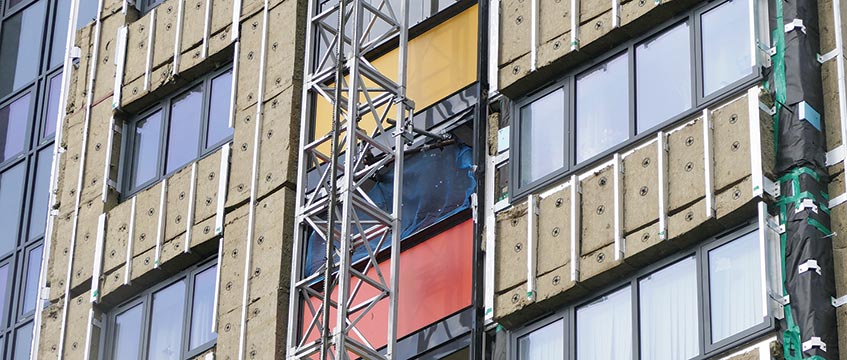Construction and building companies saw stocks dive as trading opened today (24 January), following calls from levelling up secretary Michael Gove that culpable companies contribute to a £4bn bill or be banned from the UK.
On 22 January, Gove wrote to the Construction Products Association, demanding manufacturers commit to proposals before the March deadline, vowing to pursue liable companies that do not act.
Gove said: “I am prepared to do whatever it takes to deliver our objective including using our regulatory framework to limit any culpable company from operating and selling products in this country in the future; and I will pursue those individuals and firms who are unwilling to do the right thing.”
He noted that three firms most closely associated with the refurbishment of Grenfell Tower have made £700m in profit in four years.
Shares in Grenfell insulation manufacturer Kingspan fell by 8.8% in the first few hours of trading. However, the repercussions were felt across the broader industry, with building giant Morgan Sindall dropping by 4.7% and AIM-listed materials firm Breedon down by 4.4%, among other declines.
Housebuilders downgraded
Britain’s biggest housebuilder, Barratt Developments, fell by 7%, with Berkeley Homes down by 5.5% and Bellway down by 5.2% (figures as of 1pm GMT), along with other notable drops for Countryside, Crest Nicholson and Cairn Homes.
Analysts at Jefferies have downgraded ratings for the largest companies, Barratt, Bellway and Berkeley, to “hold”, in line with a best-case scenario that housebuilders are forced to mediate their own builds. “At this stage, we believe even the housebuilders themselves do not know the full extent of the cost… but with approximately 55% of the high-rise buildings requiring remediation in London, we believe it is fair to assume the exposure to those with a long history of building in the capital could be constrained,” analysts said.
In a worst-case scenario, Jefferies considers a 12% tax rate to fund remediation. Jefferies predicts the cladding issue will become louder in the coming months ahead of Gove presenting plans to the House of Commons. “We believe the housing minister will seek to make life as difficult as he can for all involved,” it said.
The company highlighted “threats of tax, business continuity (in terms of business continuity, planning approvals, product usage), direct communications to shareholders and a very loud public campaign in the press and parliament to try to influence those involved to voluntarily contribute”.
To send feedback, e-mail emma.rosser@eg.co.uk or tweet @EmmaARosser or @EGPropertyNews











